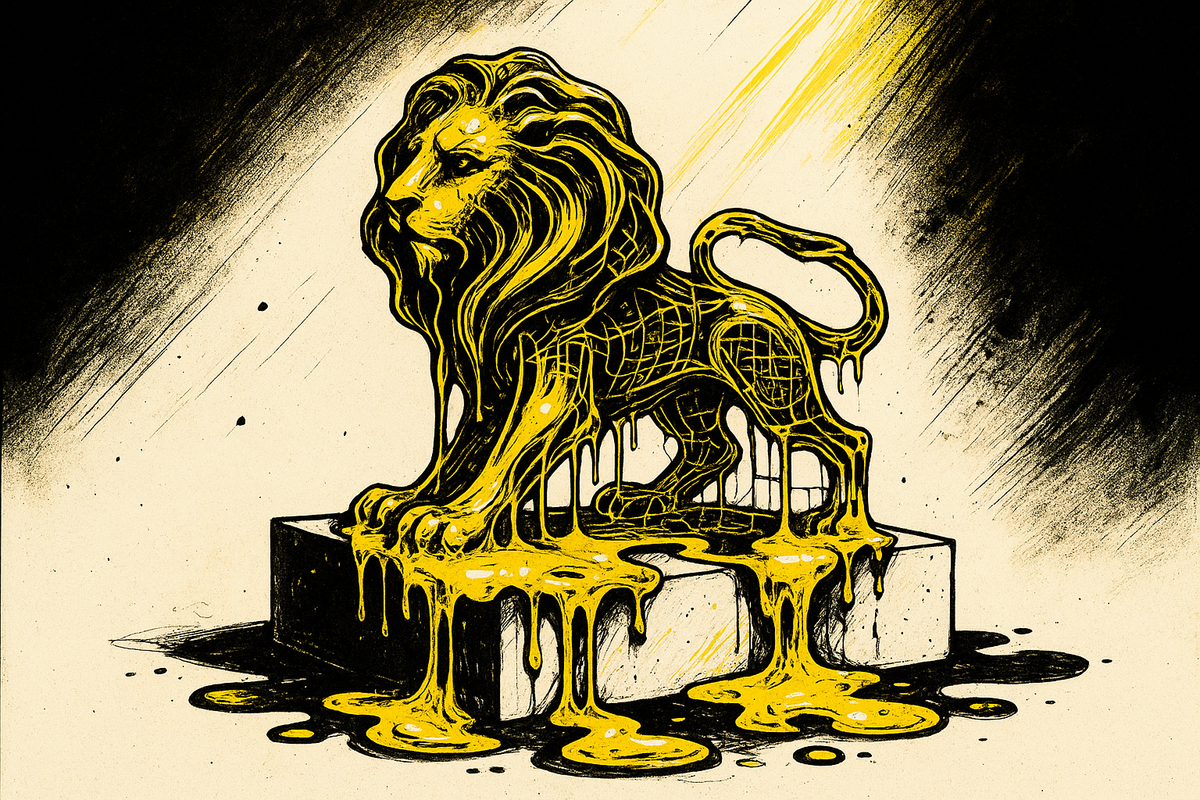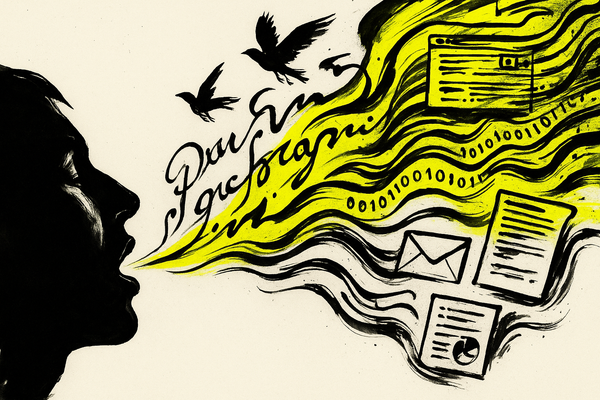ImaginEconomy Daily #3
When creative awards meet AI: The truth crisis hits Cannes

ImaginEconomy 🧠✨💰: Brands, Strategy, Story and Design in the Age of AI
Cannes Lions' AI Reckoning: DM9 Loses Grand Prix Over Fabricated Reality
Cannes Lions revoked DM9's Creative Data Grand Prix after discovering the Brazilian agency used AI-generated footage to fake news coverage and campaign results. The scandal led to the withdrawal of 12 awards across three campaigns, the resignation of CCO Icaro Doria, and forced Cannes to implement mandatory AI disclosure rules including detection tools and an ethics review committee.
ImaginEconomy Impact: This is advertising's Theranos moment. The industry built on selling trust just got caught manufacturing it. For brands, the implications are existential: if your agency is willing to fake case studies for awards, what else are they faking? The new Cannes AI rules aren't just about transparency—they're about survival. Agencies that can't prove their work is real will find clients questioning everything, from campaign metrics to creative concepts. The era of "trust me, bro" marketing just ended with a bang.
Source: The Drum on DM9 Cannes Lions scandal
xAI's $10 Billion Gambit: When Debt Meets Ambition
Elon Musk's xAI raised $10 billion—split evenly between debt and equity—to fuel its challenge to OpenAI. The funding will power a 1-million-GPU facility outside Memphis and accelerate development of its Grok chatbot, which Musk positions as a "maximally truth-seeking" alternative to competitors.
ImaginEconomy Impact: The AI arms race just got a new player with titan-level funding. For brands, this means more AI platforms competing for your content, your data, and your advertising dollars. But here's the real story: xAI is burning through $1 billion monthly. This unsustainable cash burn suggests we're heading for an AI market correction where only platforms that create genuine value for brands—not just impressive demos—will survive. Choose your AI partners wisely; some won't be here next year.
Source: TechCrunch on xAI's $10B funding round
Grammarly + Superhuman: The $825 Million Bet on AI-Powered Communication
Grammarly acquired email client Superhuman for an undisclosed sum, bringing together 40 million Grammarly users with Superhuman's AI-powered email platform. The deal follows Grammarly's $1 billion raise from General Catalyst and signals a push to build an AI productivity suite that goes beyond grammar correction.
ImaginEconomy Impact: This acquisition reveals where AI is actually creating value: not in replacing human communication, but in amplifying it. Superhuman users send 72% more emails per hour—imagine what happens when every brand communicator has that superpower. The convergence of writing assistance and email efficiency creates a new paradigm: AI agents that don't just correct your words but orchestrate your entire communication strategy. Brands that embrace these tools won't just communicate faster; they'll communicate smarter.
Source: Reuters on Grammarly-Superhuman acquisition
Microsoft's 9,000-Job Reality Check: Even Tech Giants Feel the AI Squeeze
Microsoft announced its third round of layoffs this year, cutting 9,000 jobs or about 4% of its workforce. The cuts target middle management layers and come as the company invests $80 billion in AI infrastructure, highlighting the tension between AI investment and operational efficiency.
ImaginEconomy Impact: The great AI paradox is here: companies are spending billions on AI while cutting thousands of jobs. Microsoft's layoffs reveal an uncomfortable truth—AI isn't creating the job transformation we were promised; it's accelerating job elimination. For agencies and brands, this is a wake-up call. The companies investing most heavily in AI are also the ones cutting deepest. Your competitive advantage won't come from having the most AI tools; it'll come from having the most irreplaceable human talent.
Source: CNN on Microsoft's 9,000 job cuts
Cursor Poaches Claude's Brain Trust: The AI Talent Wars Heat Up
Boris Cherny and Cat Wu, the lead developer and product manager of Anthropic's Claude Code, jumped ship to join Cursor. The move is particularly bold given that Cursor is one of Anthropic's largest customers, potentially complicating the relationship between the two companies.
ImaginEconomy Impact: The AI talent war just went nuclear, and it reveals where the real value lies—not in the models, but in the people who know how to make them useful. For brands watching this space, the message is clear: the scarcest resource in AI isn't compute power or data; it's humans who understand both technology and user needs and can get teams to execute. Companies that want to win with AI should stop hoarding GPU credits and start investing in talent that can bridge the gap between AI capability and human creativity.
Source: The Information on Cursor hiring Anthropic talent
Amazon's Million-Robot Milestone: When Automation Meets Its Match
Amazon deployed its 1 millionth robot and launched DeepFleet, an AI system that improves robot traffic flow by 10%. With robots now approaching parity with its 1.5 million human workforce, Amazon's fulfillment centers are becoming the world's largest automated ecosystems.
ImaginEconomy Impact: Amazon just showed us the future of retail operations, and it's not human-free—it's human-enhanced. The real story isn't the million robots; it's that Amazon still needs 1.5 million humans to make them work. For brands, this reveals the sweet spot of automation: AI and robotics excel at efficiency and scale, but they still need human creativity, problem-solving, and relationship building. The winning formula isn't replacing humans with machines; it's using machines to make humans more powerful.
Source: TechCrunch on Amazon's robot milestone
New York's AI Disclosure Law: The End of Synthetic Stealth Marketing
The New York State Legislature passed a bill requiring any business using "synthetic performers" in advertising to clearly disclose their AI origins. Violations carry fines of $1,000 for first offenses and $5,000 for subsequent ones. Governor Kathy Hochul has until month's end to sign the legislation that could set a national precedent.
ImaginEconomy Impact: Get ready for the "Contains AI" label on everything from Instagram ads to Super Bowl commercials. This legislation transforms AI from a creative secret weapon into a creative disclosure requirement. Smart brands will turn this constraint into an opportunity—making their use of AI a feature, not a bug. The winners will be those who can say "Yes, we used AI, and here's why that makes this ad better." The era of sneaky synthetic influencers just got a reality check.
Source: Golenbock Eiseman on NY AI legislation
Bottom Line: The Trust Recession
Today's stories paint a troubling picture: AI is eroding trust faster than it's creating value. From fabricated award entries to forced disclosure laws, from tech giants admitting defeat to mass layoffs amid record AI spending, we're witnessing a crisis of confidence in technology's promises.
The Cannes scandal isn't just about one agency's deception—it's a warning shot. In a world where reality can be manufactured at the click of a button, authenticity becomes the ultimate luxury good. Brands that survive won't be those with the most sophisticated AI, but those who can prove their humanity is real.
The future belongs to brands brave enough to be verifiably, transparently, unapologetically human. In an economy built on trust, that might be the only currency that matters.
ImaginEconomy Daily Newsletter is curated for brand, business and marketing strategists, creatives, and leaders navigating the intersection of technology and human experience.




